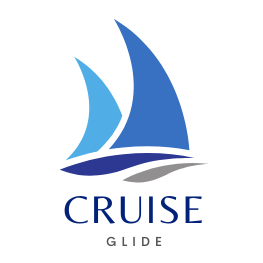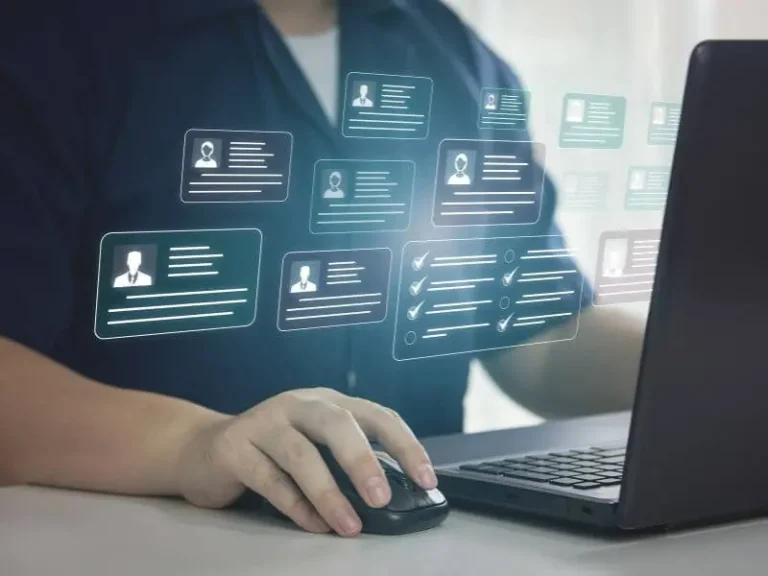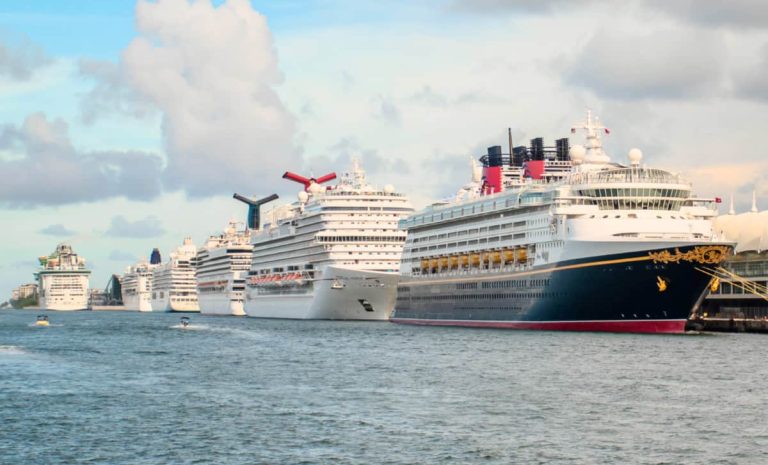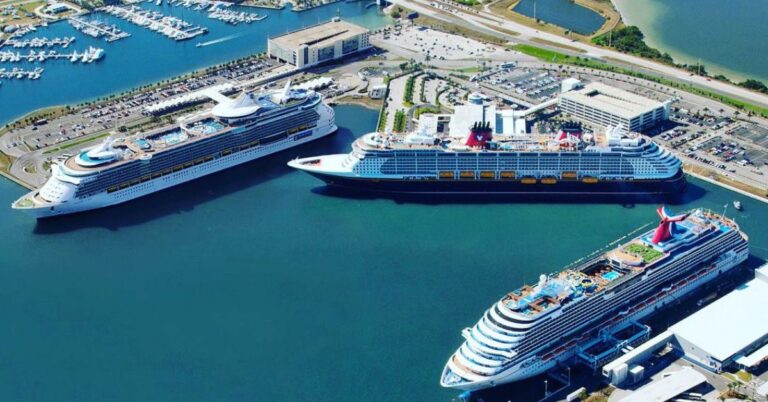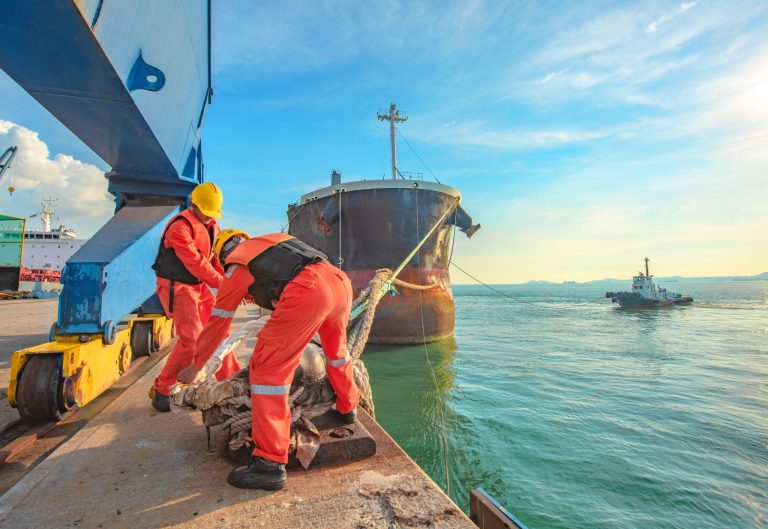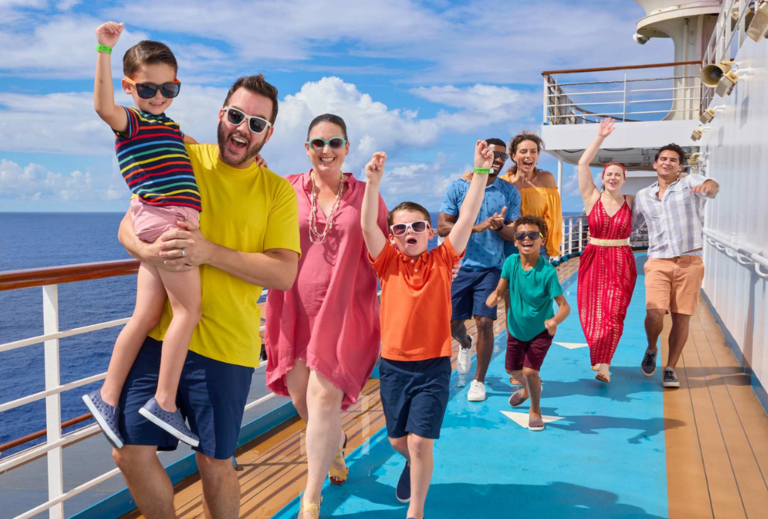From Ocean Views to Online Classes: How Kids Balance Fun and Study on Cruises
Picture this: your kids are supposed to be keeping up with their schoolwork, but they’re also on the vacation of a lifetime. It’s the classic family dilemma that many parents face when planning extended cruise vacations.
Today’s cruise ships are floating cities designed with families in mind. Royal Caribbean’s Icon of the Seas ship is 364 m long and can carry up to 7600 passengers at maximum capacity, along with 2350 crew members.
With that kind of space and capacity, there’s room for both adventure and academics. Modern cruise lines have figured out that families don’t want to choose between fun and education – they want both, and they want it to work seamlessly together.
The Reality of Modern Cruise Ships for Families
Today’s cruise ships aren’t your grandparents’ floating hotels. They’re sophisticated vessels equipped with everything a family needs to maintain some semblance of normal life, including educational routines.
Spacious Learning Environments
The sheer size of modern cruise ships means there’s plenty of room for kids studying on cruises to find quiet spots. Many ships now feature dedicated library areas, computer centers, and even quiet lounges specifically designed for families who need to balance work and study time. Parents often discover that tutoring online becomes much more manageable when they have access to these purpose-built spaces.
These areas aren’t just afterthoughts either. Cruise lines have realized that families staying for extended periods need more than just entertainment – they need functional spaces where children can focus on their studies without distractions.
Technology-Enhanced Facilities
Gone are the days when cruise ships had spotty internet that barely loaded email. Today’s vessels come equipped with satellite internet that’s usable for online classes for kids. Many ships offer internet packages specifically designed for families who need reliable connectivity for educational purposes.
The technology infrastructure supports everything from video calls with teachers back home to accessing online learning platforms. Some ships even have computer labs where kids can work on assignments if they don’t have their own devices.
Dedicated Study Areas
Smart cruise lines have started creating spaces that feel more like study halls than vacation spots. These areas often feature comfortable seating, good lighting, and – most importantly – relative quiet. It’s amazing how much easier it becomes to maintain educational routines when there’s a designated space for learning.
This thoughtful design helps families establish boundaries between fun time and study time, which is crucial for maintaining any kind of academic schedule while traveling.
Making Online Learning Work at Sea
The biggest challenge for families isn’t finding space to study – it’s making sure the technology works when you need it most.
Internet Connectivity Solutions
Here’s the reality: cruise ship internet has improved dramatically, but it’s still not like having fiber optic at home. The key is understanding how to work with what you’ve got. Most ships offer different internet packages, and it’s worth investing in the premium options if your kids need to attend live online classes for kids.
Many families find success by downloading course materials and videos when the connection is strong, and then working offline when needed. It’s all about being strategic with your bandwidth usage.
Structured Study Schedules
Balancing fun and studying on cruises requires more planning than you might think. The most successful families create schedules that work with the ship’s rhythm rather than against it. This might mean scheduling study time during sea days when there are fewer distractions, or using early morning hours before the ship gets busy.
The key is flexibility. Some days the internet might be better in the morning, other days it’s better in the evening. Being able to adapt your schedule makes all the difference.
Interactive Learning Platforms
Many online learning platforms work surprisingly well on cruise ships, especially those designed for mobile devices. Programs that can cache content locally are particularly valuable because they don’t require constant internet connectivity.
Parents often find that interactive platforms keep kids more engaged than traditional textbook work, which is especially helpful when there are so many tempting distractions nearby.
Fun Activities That Double as Learning Opportunities
The real magic happens when you stop thinking of fun and education as separate things and start looking for opportunities where they overlap naturally.
Cultural Exploration Through Port Visits
Every port stop becomes a living history or geography lesson. Fun activities for kids on cruises don’t have to be separate from educational experiences. Walking through ancient ruins, visiting local markets, or exploring different ecosystems provides learning opportunities that no classroom can replicate.
Many families create port journals or photo essays that connect their experiences to what they’re studying in school. It’s amazing how much more interested kids become in history when they’re standing where it happened.
Science Through Ocean Discovery
The ocean itself becomes a massive science laboratory. Kids can observe marine life, learn about weather patterns, and understand navigation – all while having fun. Some ships even offer marine biology programs or stargazing sessions that complement traditional science curricula.
These experiences often spark interests that continue long after the cruise ends, making the travel and education for children combination particularly powerful.
Social Skills Development
Don’t underestimate the social learning that happens on cruises. Kids from different countries and backgrounds interact naturally, learning about different cultures and perspectives. These soft skills are just as valuable as academic subjects.
Many families find that their children return home with improved confidence and communication skills, benefits that extend far beyond traditional academic measures.
Practical Tips for Parents
Making this whole system work requires some strategic thinking and realistic expectations about what’s possible.
Setting Realistic Expectations
You’re not going to replicate a traditional classroom experience on a cruise ship – and that’s okay. The goal should be maintaining educational momentum rather than advancing at the same pace as at home. Kids studying on cruises often learn different things than they would in a traditional setting, and that’s a benefit.
Focus on core subjects and be flexible about everything else. Some learning might happen through ship activities rather than formal lessons, and that’s perfectly valid.
Creating Study-Play Balance
The most successful families create clear boundaries between study time and fun time. This might mean designating certain hours as “school hours” and other times as “cruise hours.” Having these boundaries helps kids stay focused during study periods because they know fun activities are coming.
It’s also important to involve kids in creating these schedules so they feel like they have some control over their daily routine.
Involving the Whole Family
Travel and education for children work best when everyone’s on board – literally and figuratively. When parents and siblings participate in educational activities, kids are more likely to stay engaged. This might mean everyone keeping a travel journal or participating in educational shore excursions together.
Making learning a family activity rather than something kids have to do alone makes the whole process more enjoyable for everyone.
The transition from structured learning to family fun becomes much smoother when everyone understands and supports the schedule.
| Aspect | Traditional Classroom | Cruise Learning | Benefits |
| Environment | Fixed classroom setting | Changing ocean views | Reduced monotony, natural inspiration |
| Field Trips | Occasionally, local destinations | Daily port explorations | Immersive cultural experiences |
| Social Interaction | Same classmates daily | International peer groups | Global perspective development |
| Flexibility | Rigid schedule | Adaptable to ship activities | Better work-life balance |
| Technology | School-provided devices | Personal devices, varied connectivity | Self-reliance, problem-solving skills |
FAQs
What is the educational value of cruises?
Believe it or not, cruises make an ideal out-of-school school for children. From onboard activities like arts and crafts to onshore excursions that teach them about other cultures, almost everything about a cruise offers a teaching moment.
How to prepare for a cruise with kids?
Know what makes your kids tick and give everyone something to look forward to. Let little ones help with planning, pack their favorite items, and take advantage of kid-friendly programs and activities onboard.
How to socialize on a cruise?
Try murder mystery games, sports activities, teen clubs, nightclub events, bingo, piano bars, digital play areas, and dance classes. These activities naturally bring families together and create lasting friendships.
Final Thoughts
The idea of balancing fun and study on cruises might seem impossible at first, but thousands of families are proving it can work beautifully. The key is approaching it with realistic expectations and a willingness to be flexible.
Modern cruise ships provide better educational infrastructure than ever before, and online classes for kids are becoming increasingly compatible with ship-based internet systems. The real magic happens when families stop seeing education and vacation as opposing forces and start viewing them as complementary experiences.
